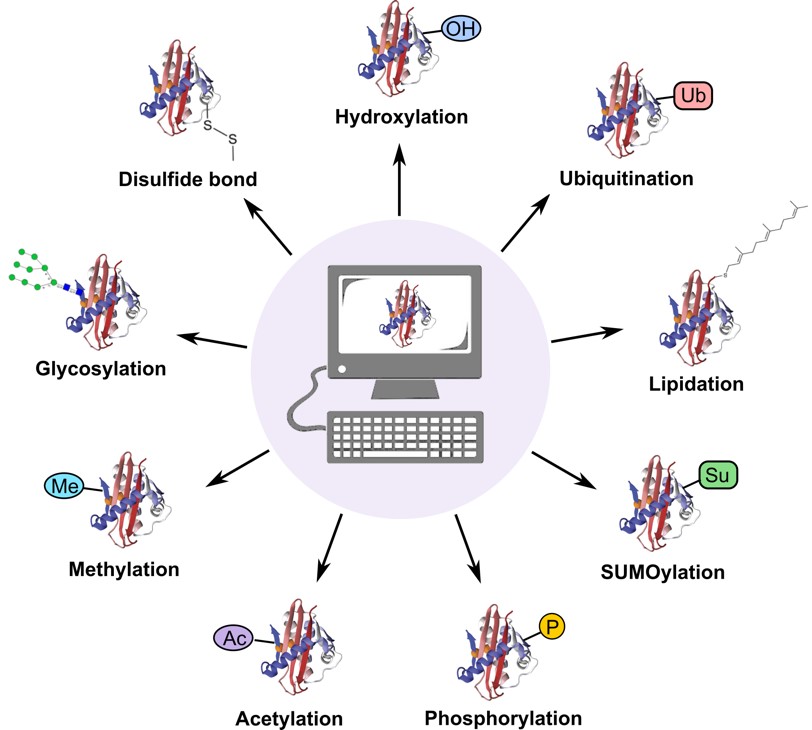Post-translational Modification
Post-translational modification (PTM) refers to the covalent and generally enzymatic modification of proteins during or after protein biosynthesis in the cell. To date, more than 350 types of distinct PTMs have been experimentally discovered in vivo, indicating their important roles in regulating cellular processes. PTMs occur mostly on the amino acid side chains or at the protein's N- or C- termini, and they play a key role in expanding the diversity of protein activities by introducing new functional groups such as phosphate, acetate, amide groups, or methyl groups, resulting in changes in enzyme activity, ligand affinity, protein-protein interactions, and protein stability. Structural changes can also occur at the main chain level, especially in the formation of disulfide bridges and in proteolytic cleavage of a protein at a peptide bond.
Identification of proteins’ PTM sites can be done using tandem mass spectrometry (MS/MS). In recent years, MS-based high-throughput experimental approaches have also been developed and become an increasing popular technique. In contrast with conventional experimental methods, computational modeling of PTMs represents an alternative and attractive approach for its accuracy, fast-speed and convenience. Profacgen takes advantage of the computational modeling capabilities to predict potential PTM sites in the protein, as well as to model the side chain and main chain conformations to reflect the changes resulted from common post-translation modification. Our algorithms are trained using existing PTMs observed in the Protein Data Bank and proven to be fast and accurate.
Computational modeling of post-translational modifications

Our Service Advantages:
Sequence and structure based prediction of PTM sitesAccurate models for the simulation of modified residues
Manipulation of PTMs involving main chain changes
Energy-based refinement of modified protein structures.
Inclusion of ligands, cofactors, and water in the model
Prediction of physical properties and comparison with unmodified protein
Our goal is to provide the computational PTM service to aid the study of corresponding effects on protein structure, dynamics and binding specificity. The results may improve the understanding the above effects and functional outcomes, facilitate the rational design of PTM regulation, and eventually be used to inform structure-based therapeutic efforts which target modified protein systems.
We provide the service in a fully customizable manner to meet the specific requirements from the customers. Please feel free to contact us for more details about our computational post-translational modification service.